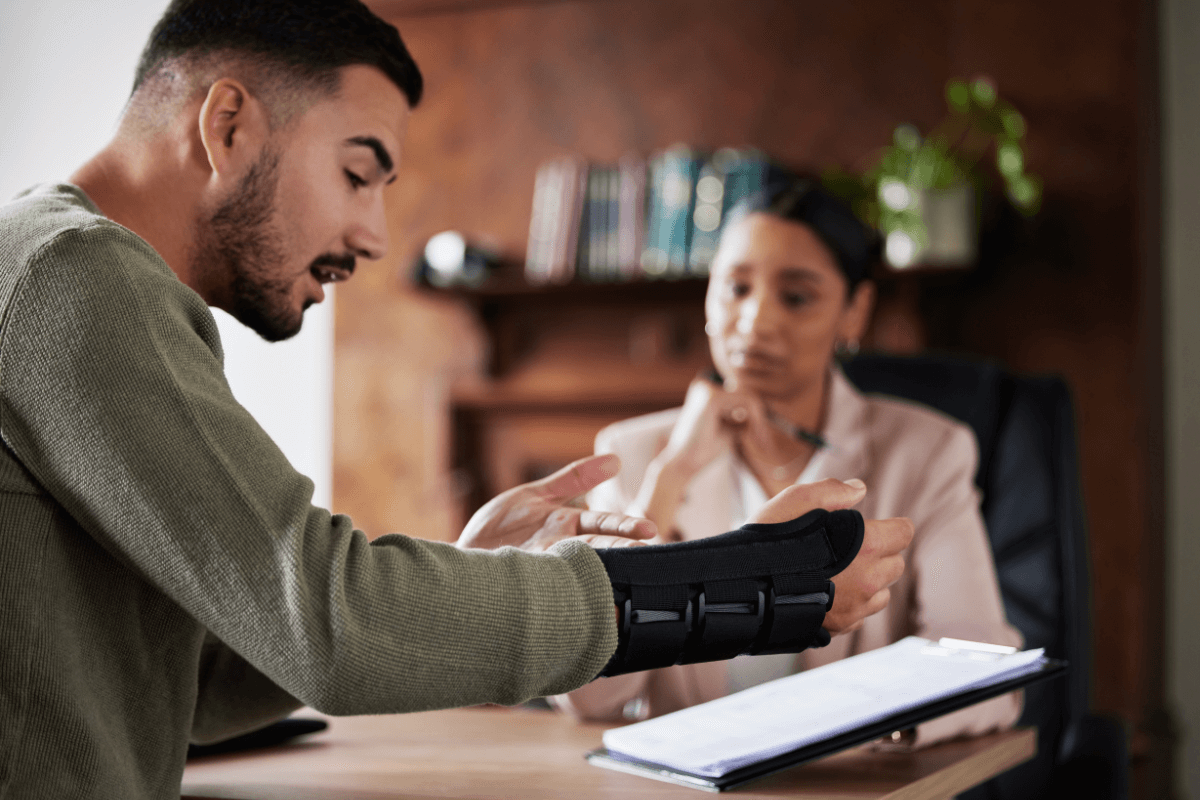
Partner at AKD Lawyers
Practice Areas: Personal Injury

“Cancer Alley” is the unfortunate nickname given to the 85-mile corridor surrounding the Denka synthetic rubber plant in St. John the Baptist parish. The plant manufactures neoprene – the material in wetsuits – which results in the presence of toxic gasses released into the atmosphere. According to the Environmental Protection Agency, the risk of developing cancer for residents of the parish is seven times the national average. Even when local residents raised concerns about the plant’s emissions and the danger to their families’ health, local and state governments did not act. The Federal Government also did not intervene to regulate or shut down the plant. Could residents of St John the Baptist Parish sue the government for personal injury?
Personal injury cases against government entities present a unique set of challenges. While it is common for individuals to seek legal remedies for injuries caused by others, suing a government body is not as straightforward. Sovereign immunity often protects these entities, making it more difficult to bring a lawsuit. But it is not an absolute barrier; there are specific situations where the government can be held responsible for injuries. For example, if a city fails to maintain a public sidewalk and someone gets hurt, the injured person might be able to sue. However, rules and procedures can be quite complex. There are often strict deadlines and particular forms to fill out. Understanding the basics of personal injury law in relation to government entities helps individuals grasp what might be involved in such a case, without necessarily delving into all the legal complexities.
Essential Principles of Sovereign Immunity in Personal Injury Law
Sovereign immunity in personal injury law revolves around a key principle: government entities are usually protected from being sued. It’s a concept stemming from the idea that a government, as the sovereign ruler, cannot be taken to court without its consent. In the United States, both federal and state governments have certain immunities, though there can be exceptions. For example, if a government employee acts negligently within the scope of official duties, it might lead to legal action. However, pursuing such a case involves understanding specific rules, exceptions, and procedures. Sovereign immunity adds a layer of complexity to personal injury law, making it different from cases against private individuals or businesses. This principle acts as a shield for government bodies but doesn’t entirely eliminate the possibility of legal action, reflecting a balance between individual rights and governmental protection.
Exceptions to Sovereign Immunity in Louisiana
Louisiana’s Constitution stands out as it has done away with governmental immunity in cases of tort and contract. This means the state and its agencies can’t escape lawsuits for contract issues or injuries to people or property. However, the state’s lawmakers can put restrictions on the amount of damages paid in lawsuits against the government. Moreover, the law dictates the state must specifically set aside funds to pay such judgments.
Additionally, Louisiana has legal provisions that can limit government liability, such as granting a certain type of immunity. In a notable case, the state’s highest court extended this immunity to cover deliberate wrongful acts by prosecutors.
Navigating the intricate legal landscape of Louisiana requires a deep understanding of various facets of personal injury law. For instance, the opioid crisis has had a significant impact on personal injury claims in the state. Furthermore, there are various categories under personal injury, each with its nuances, such as the different types of damages one can claim.
It’s also essential to be aware of specific scenarios like motorcycle accidents involving lane splitting, which have their own set of rules. Moreover, understanding work injury rights is crucial for those involved in workplace accidents.
In terms of personal rights, Louisiana has a complex legal structure. The state’s supreme court has even acknowledged a right to compensation for privacy violations under the state constitution. Louisiana courts use a particular legal test, similar to federal law, to analyze these claims.
While claiming damages for constitutional violations in Louisiana can be uncertain, people harmed by the government have a more defined path when making tort claims against it, guided by the Louisiana Governmental Claims Act. This law spells out the procedures for making contract and tort claims against the government and even sets a limit on damages. It also dictates where such lawsuits must be filed. Encouragingly for those who want to sue, Louisiana law often allows tort claims against government workers, and it lets those harmed by wrongful acts sue the offender’s employer, even when the employer is a government entity. This includes cases involving deliberate wrongful acts.
Filing a Claim Against Government Agencies: Required Procedures and Documentation
Filing a claim against government agencies is a process that requires understanding specific procedures and documentation. Unlike suing a private individual or company, taking legal action against a government body often involves a particular set of rules. Initially, a person must usually file a formal claim with the appropriate government agency, detailing the incident and the injuries suffered. This claim must often be submitted within a specific time frame, sometimes as short as a few months. Exact forms and supporting documents might vary by jurisdiction and the nature of the claim. Failure to adhere to these procedures can result in the claim being dismissed. Therefore, it’s essential for individuals to become familiar with relevant laws and regulations. While the process may seem daunting, understanding the required steps and paperwork can make it more approachable for those seeking redress from a government entity.
Understanding Federal Tort Claims Act (FTCA): Key Provisions and Limitations
The Federal Tort Claims Act (FTCA) is a significant law allowing private individuals to sue the United States federal government under specific circumstances. It marks a significant exception to sovereign immunity. Enacted in 1946, the FTCA permits legal action for personal injury, property damage, or loss caused by the negligent or wrongful act of a federal employee. However, the law also has clear limitations. Claims must be based on state law where the act occurred, and the federal employee’s actions must have been within the scope of their official duties. Certain types of claims, such as those related to combatant activities of the military, are entirely excluded from the FTCA. Understanding the key provisions and limitations of the FTCA helps shed light on when and how one might sue the federal government, painting a picture of the balance between citizens’ rights and government protection.
Balancing Individual Rights and Government Protections in Personal Injury Law

Sovereign immunity and personal injury law present a complex interplay between individual rights and government protections. On one hand, sovereign immunity safeguards government entities, allowing them to function without constant fear of litigation. On the other hand, exceptions to immunity, such as the Federal Tort Claims Act, ensure there is still accountability and that individuals can seek redress for wrongs committed by the government. The balance struck between these two forces is a reflection of democratic values, where both government stability and individual rights are upheld. Understanding sovereign immunity, exceptions, procedures, and challenges involved in suing government entities offers insight into a unique aspect of personal injury law. It underscores a system designed to recognize the rights of individuals while also respecting the unique position of government in society. It’s a balance that continues to shape legal principles and policies across the nation.
Contact Alvendia Kelly & Demarest today at 504-200-0000 to schedule a free consultation.
Categories
- Bicycle Accidents
- Car Accident
- Case results
- Class Action
- Community Aid
- COVID-19
- Fun
- General
- Hard Rock Lawsuits
- Holiday
- Insurance Claims
- Legal Advice
- Mardi Gras Accident Attorney
- Mass Tort
- Medical
- Motorcycle Accident
- Personal Injury
- Practices
- Premise Liability
- Recent News
- Safety
- Truck Accidents
- Uncategorized
- Weather
- Work-Related Accident

In 2003, after being dissatisfied with the quality of legal care for victims of car accidents, Roderick ‘Rico’ Alvendia sought to establish a new firm focused on providing high-quality legal services to aid injured victims and their families. J. Bart Kelly, sharing Rico’s passion for upholding justice, joined the firm later that year, and established a partnership.






